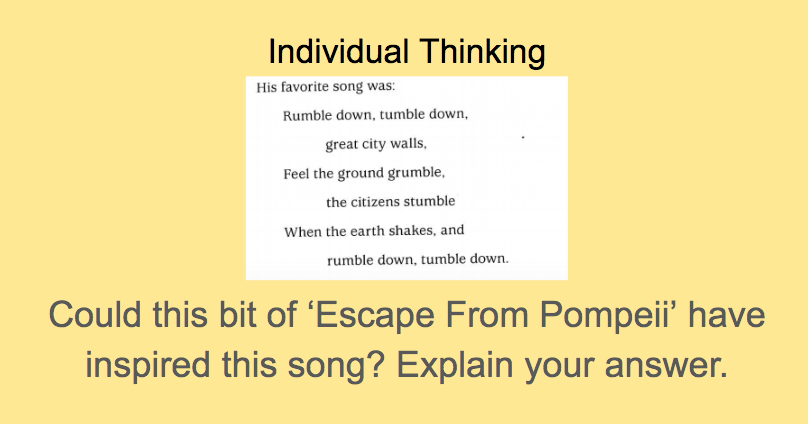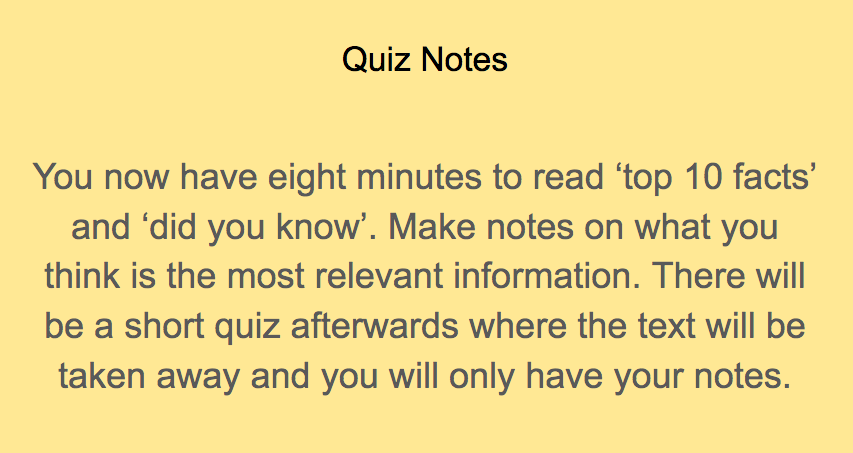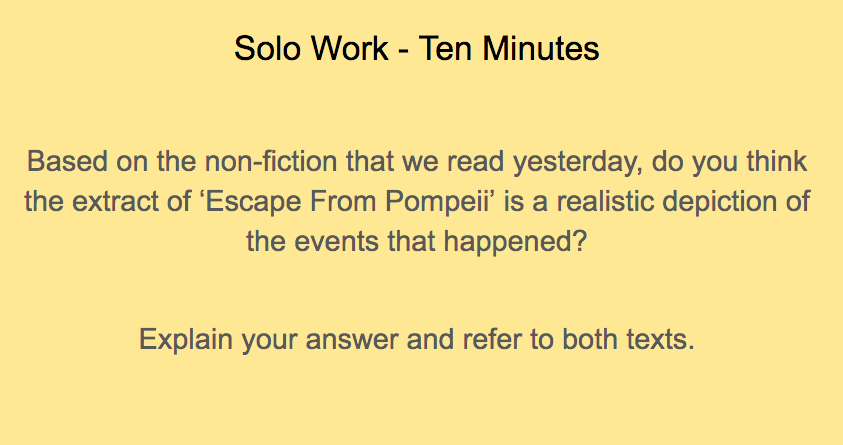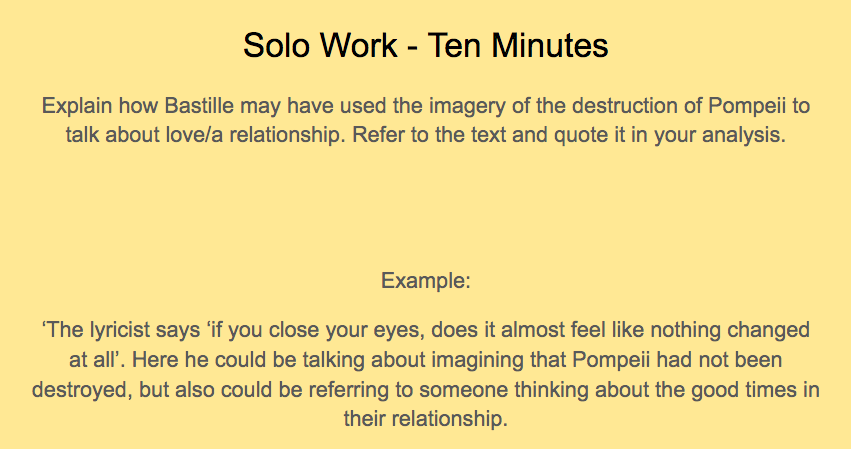How to Teaching Reading in a Science Class
We have taught whole class reading in Central Phase Two for three years now. I won't diameter y'all with the numbers, merely the results have been good and then we've stuck with it and fifty-fifty rolled it out across our MAT, to similar success. Still, similar all good things, they sometimes demand a tweak, so here's how it'll exist taught this coming year, and why.
For context, this was how it was taught for the last two years:
https://theteachingbooth.wordpress.com/2017/09/22/whole-course-reading-reflecting-and-rejigging/
This timetable worked well, simply it could exist restrictive and occasionally could exist frustrating if you but wanted to run with something, which was never the intention.

We teach whole class reading from 10-10:45 every mean solar day.
So, this year, a big change is that we won't exist doing a lesson dedicated to vocabulary every Monday. Whilst these were ok, they didn't have the impact hoped for and generally, they simply didn't involve enough reading. Instead, 5 to x-ish minutes of every session (we do 45 minutes a twenty-four hour period, five times a week) will focus on vocabulary. Oftentimes this will exist vocabulary that the children are about to come beyond in the text being read, but it can also exist done subsequently the text has been read. It could exist presented like this:


Merely could also be washed like this prior to reading the text:

The latter is very much checking if the children know and so telling them what words hateful. In the example higher up, information technology'south the poem Ozymandias, so it's complex and the more of the vocabulary the children already know, the more than likely they are to admission the pregnant. In the one-time ii texts (Beetle Boy and The Business firm With Craven Legs), the texts are easier to admission so information technology's an opportunity for children to read effectually the words in context and figure out what they mean.
So, onto the timetable.
Mon – Class Novel – Explanation, PSHE, P4C
Monday'due south lesson will now be based effectually the whole class novel, which should be being read to the children for 15 minutes a day. It's important to attempt and schedule this at a time that is not the end of the solar day, as otherwise it tends to drop off to giving out letters/assembly/general announcements et al. Both Monday and Friday'southward lessons swivel around this existence read, and so it's vital to attempt and make information technology happen every day. We all have children who can access that text at unlike levels, so information technology's important that nosotros make certain they're all on the same folio (no pun intended). The majority of Mon's lesson should exist spent recapping the events that have happened, discussing character developments and thinking about how and why events have unfolded. Yous don't need a shiny activity for this, just some well crafted questions and the time for children to hash out. Questioning can be as simple equally 'write everything you can call up about Stanley Yelnats' followed by a discussion. It might exist a squeamish idea to construct a working wall for this, where you add to information technology every week as the plot unfolds, simply nosotros say that this is absolutely not compulsory. These lessons are besides the all-time time to practise 'explicate' activities, delving into authorial intent. There will be plenty of inference and retrieval in these sessions (every bit in all of them), merely these are non the primary focus.
Mon'due south lesson should culminate in a PSHE/P4C way question which relies on discussion and the children's opinions. For example, those using Holes in Year vi might set:
'If y'all take a bad boy and make him dig a pigsty every twenty-four hour period in the hot sun, it will plow him into a skilful boy' – to what extent do you lot agree with this statement?
or
Louis Sachar chose to make the warden female; a reveal which oft shocks the audience. Do y'all think the warden would have been scarier to the reader as a male? Explicate your respond.
Those doing Wonder in Twelvemonth five might enquire
Should Auggie be immune to attend public school?
or
If someone looks different to you lot, is it ok to ask them well-nigh information technology?
These questions rely on discussion, have no correct answer and should exist shared and challenged widely within the class (proficient opportunity for a prove telephone call).
Tuesday to Thursday – Linked Texts – Inference and Retrieval
Tuesday to Thursday is pretty much the same as information technology had been. Three days of linked text (or you may find you get three days worth of reading out of 1 text). These texts should have linked themes, so for example, you lot might read about Mount Vesuvius on Tuesday, read an extract from Escape to Pompeii on Wednesday and wait at Pompeii past Bastille on Thursday. I've actually resourced exactly what that would look like in this folder: https://drive.google.com/drive/folders/1tVeffhDuHXtHH04e_JGEZEuclqYFFcFP?usp=sharing




Teachers might decide a horror theme to the week and look at Room 13, The Listeners by Walter De La Mer and Poe's 'The Raven'. They may delve into the environment and look at Somebody Swallowed Stanley, some non-fiction on wastage in the sea and Under The Sea. It's their choice (there are some reading spines I created to help here- https://drive.google.com/bulldoze/folders/1TbA7N5ZUP9Ttf5PyoY6ZXzJMXJcTVNVC )
You can structure these lessons every bit just a regular Whole Class Reading lesson with shared, individual and partnered talk and then a bit of solo work, like this i, for case – https://docs.google.com/presentation/d/1fRSpvAMrD8bvkvtHJ3Sa-D3UKJDPzEyVa_Lp9_FScEA/edit?usp=sharing
Or you could employ the wide range of strategies in the reading strategy document – https://docs.google.com/document/d/14sHLrFc5RU2pxqc0QtldLGHML8M0yvPh2r262dBe7i4/edit?usp=sharing
These could (merely do not accept to) link to foundation and scientific discipline and you could likewise make links to your class novel (for instance exploring relevant historical or cultural information that would deepen understanding of the story).
Whilst you volition delve into all the reading strands (and do daily vocabulary), the focus in these sessions should be on inference and retrieval. An of import change is that information technology could now be both in one, rather than focusing on one every bit a 'stand alone'.
Friday – Class Novel – Prediction and Summary
On Friday, nosotros're going back to the form novel. The justification for this is that summary and prediction were too difficult to teach with extracts as ultimately the children did not accept enough background cognition of the texts we were using. So, again, nosotros need to recap the text since we'll accept read it all calendar week since Monday, so motion into these two skills. Prediction obviously hinges off the children using their noesis of the text, so it's like shooting fish in a barrel to assess. Consider mixing it up with questions like 'what might happen to Auggie' etc, rather than just thinking about what happened next. You can also think well-nigh 'what might the characters take expected to happen at this point we read this calendar week – what did you the reader await to happen?' etc. Finally, nosotros demand to do summary work. At that place are ideas in the reading strategies certificate in a higher place merely be mindful that this is a difficult chore for most children, so we should enquire questions like 'choose three words to describe Auggie and explicate why y'all chose these words'. This also has a good crossover with the vocabulary education – which of these three words all-time describes Auggie and why?
Finally here are some questions I'thou asked all the time
When do you hear the children read?
You can hear most children read a paragraph or 2 a week using this approach. If you miss whatsoever (keep notes), you can either hear them next week if you know they're fluent or pick them up i:one. The nice thing about using your class novel on Monday and Friday is y'all can re-read segments with less fluent readers and the vocabulary should be largely familiar to them, especially stuff they might otherwise trip over such as names.
How practice you assess information technology?
We don't mark the WCR books. Teachers assess constantly by circulating and reading work over the shoulders of children and giving live feedback, besides equally 'show calling' work by displaying it on the board and discussing it with the class. They also do this by collecting answers and discussing reading with the children. All children do ane summative reading exam per term to further inform teacher cess.
What well-nigh children who can't decode etc?
Whole class reading sessions are almost building understanding and comprehension, so information technology is, in my stance, absolutely fine to read texts to these children in these sessions to build their understanding. You can besides pre-read the texts with them. Nonetheless, these children too need to read regularly with an adult ane:1 and may crave phonics intervention. I strongly believe these should occur outside of these sessions.
Source: https://theteachingbooth.wordpress.com/2019/09/08/whole-class-reading-2019-2020/
0 Response to "How to Teaching Reading in a Science Class"
Postar um comentário